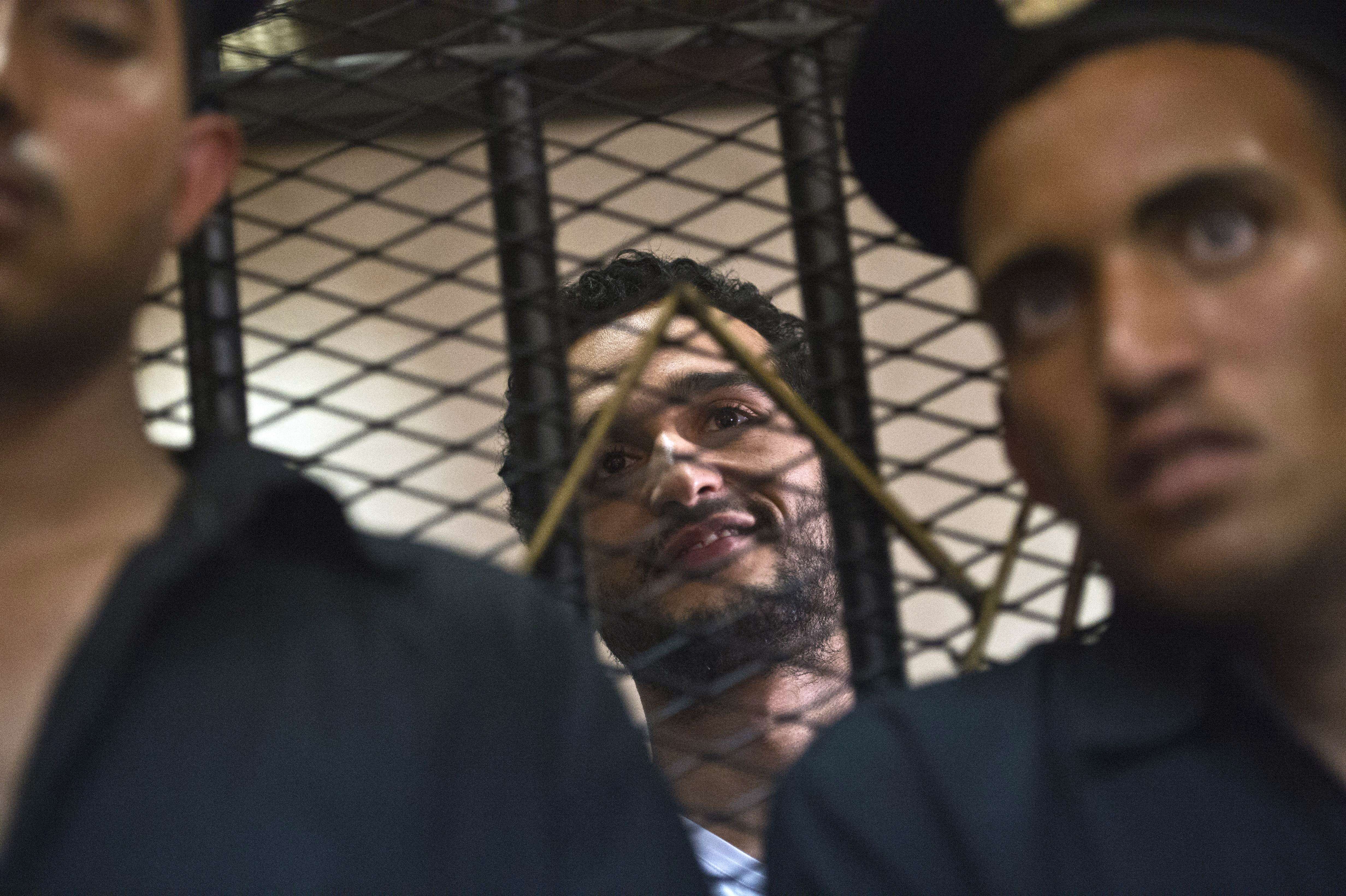
(AFP File Photo\ Khaled Desouki)
The European Union, Freedom House, and local rights organisations condemned Egypt’s mass sentencing of 230 defendants to life imprisonment and 39 minors to 10-years in prison on Wednesday.
The Cairo Criminal Court also fined them to a total of EGP 17m. Among those convicted was renowned activist Ahmed Douma.
The spokesperson of the European Union in Egypt stated that this mass trial “violates international human rights obligations”, calling on Egyptian authorities to abide by their international obligations.
The statement added that the EU continues to support Egypt in “its political transition”, and in meeting the demands and aspirations of the 25 January Revolution.
“Egypt’s courts have become a tool of repression rather than a pillar of justice, as the life sentences imposed on Douma and his co-defendants make horribly clear,” Freedom House’s vice president of regional programmes Robert Herman said in a statement.
Herman further added: “President Al-Sisi and the government should focus on building a democratic system rather than on repression that fuels turmoil.”
Judge Nagy Shehata, who was behind this most recent mass sentence, previously handed down 188 death sentences, to be referred to the Grand Mufti last December; and has become notorious among activist circles for his harsh sentences.
The Arab Network for Human Rights Information called the sentence “oppressive”, and said that the conditions for trial were unjust, adding that Judge Nagy Shehata has previously stated his “personal hostility for the revolution and everyone that took part in it”.
Defendants in the cabinet case are accused of attacking the cabinet building, security personnel, and of burning the Scientific Institute in Cairo in December 2011. Protestors had been demonstrating against the Supreme Council of Armed Forces (SCAF) and their appointment of Kamal El-Ganzoury as prime minister.
Douma is also accused of allegedly organising the sit-in and inciting violence.
Military forces dispersed the sit-in and killed several of the protesters, including Sheikh Emad Effat and Ahmed Abdel Hany.
“This sentence was made to punish citizens for partaking in the January 2011 revolution,” ANHRI stated. “It’s very symbolic that these sentences come after Mubarak and both his sons are released.”
Human Rights Watch’s 2015 world report on Egypt stated that many of Egypt’s judges and prosecutors “have proved willing accessories” in authorities’ clampdown, as they have sentenced hundreds of defendants to death and life imprisonments and routinely authorised pretrial detention of little to no evidence.


